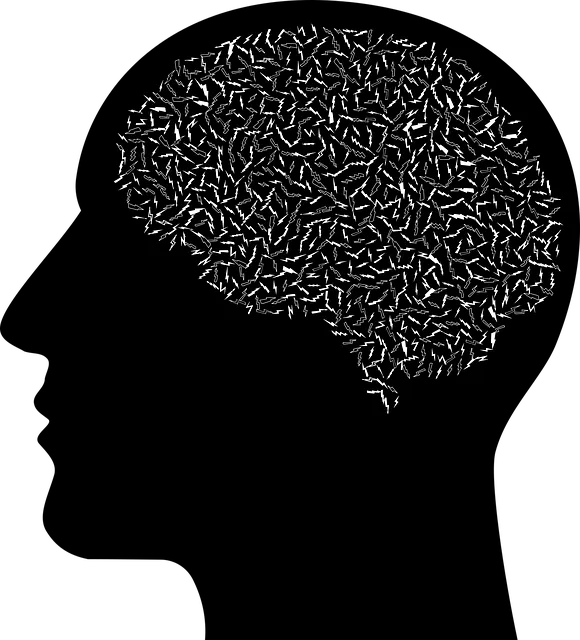Northglenn Kaiser Permanente prioritizes cultural sensitivity in mental healthcare, recognizing diverse patient needs and improving outcomes for its varied community. Through training like mindfulness meditation, inclusive spaces, and programs addressing specific cultural traditions, they foster trust and effective diagnoses. Their initiatives such as Stress Management Workshops, Mental Wellness Podcast Series, and Mental Health Policy Analysis set them apart as a trusted beacon for mental health services in the region, offering personalized care tailored to unique ethnic needs and promoting holistic healing for all communities.
Cultural sensitivity is a cornerstone of quality mental healthcare. In today’s diverse society, understanding cultural nuances can significantly impact patient outcomes. This article explores the importance of cultural sensitivity in mental healthcare practice, highlighting successful initiatives like Northglenn Kaiser Permanente’s dedicated services. We’ll delve into strategies for culturally competent care and discuss how enhancing access and quality through sensitivity benefits diverse patient populations, emphasizing the positive impact on overall mental well-being.
- Understanding Cultural Diversity in Mental Healthcare
- The Impact of Cultural Sensitivity on Patient Outcomes
- Northglenn Kaiser Permanente: A Focus on Mental Health Services
- Strategies for Culturally Competent Practice
- Enhancing Access and Quality Care through Cultural Sensitivity
Understanding Cultural Diversity in Mental Healthcare

In the diverse communities served by Northglenn Kaiser Permanente, understanding cultural diversity is paramount for effective mental healthcare. This involves recognizing and appreciating the unique beliefs, values, and practices that shape individuals’ mental health experiences. Every patient brings a distinct cultural lens to their interactions with mental health professionals, which can significantly influence how they perceive and engage in treatments like Mood Management. For instance, some cultures may emphasize community support over individual therapy, while others might have specific rituals or herbal remedies for addressing emotional distress.
Cultural sensitivity fosters meaningful communication strategies that bridge these gaps. Mental health practitioners at Northglenn Kaiser Permanente are trained to incorporate mindfulness meditation techniques into their practices, creating safe and inclusive spaces for patients from various backgrounds. By embracing cultural diversity, the organization aims to ensure that every patient receives tailored care that respects their heritage and promotes holistic healing, ultimately improving mental well-being outcomes for all.
The Impact of Cultural Sensitivity on Patient Outcomes

Cultural sensitivity in mental healthcare plays a pivotal role in enhancing patient outcomes. By understanding and respecting a patient’s cultural background, beliefs, and values, mental health professionals can create a safe and supportive environment that fosters trust and encourages open communication. This, in turn, allows for more accurate diagnoses, effective treatment plans, and improved adherence to therapy.
In the context of Northglenn Kaiser Permanente mental health services, cultural sensitivity is not just a best practice; it’s a critical component driving successful patient outcomes. The Stress Management Workshops Organization, Mental Health Policy Analysis and Advocacy, and Coping Skills Development initiatives underscore the organization’s commitment to addressing diverse cultural needs. These programs equip patients with valuable coping skills, promote community engagement, and advocate for mental health policies that resonate with various cultural contexts, ultimately enriching the holistic well-being of Northglenn Kaiser Permanente’s diverse patient population.
Northglenn Kaiser Permanente: A Focus on Mental Health Services

Northglenn Kaiser Permanente stands as a beacon for mental healthcare services, highlighting the critical role cultural sensitivity plays in treating diverse patient populations. This healthcare provider recognizes that understanding and respecting individual cultural backgrounds significantly enhances therapeutic outcomes. By prioritizing cultural sensitivity in mental healthcare practice, Northglenn Kaiser Permanente ensures their team is equipped to offer personalized care, fostering trust and open communication with every patient.
The organization’s commitment extends beyond traditional therapy sessions, incorporating initiatives like the Mental Wellness Podcast Series Production to engage a wider audience with relevant topics. This strategic approach not only promotes mental wellness but also underscores the importance of Mind Over Matter Principles in addressing diverse psychological needs within a culturally responsive framework.
Strategies for Culturally Competent Practice

Incorporating cultural sensitivity into mental healthcare practice is paramount for delivering effective and equitable care, especially in diverse communities like Northglenn, where Kaiser Permanente’s mental health services are renowned. One key strategy involves educating healthcare providers on cultural competency, ensuring they understand the nuances of different ethnic, racial, and socioeconomic backgrounds. This knowledge enables them to create safe and inclusive environments for clients, fostering open communication and trust.
Additionally, developing Mental Wellness Coaching Programs that respect and incorporate cultural traditions can significantly enhance therapy outcomes. These programs should be tailored to address specific communities’ mental health challenges while promoting mental wellness. By integrating traditional healing practices alongside evidence-based therapies, healthcare professionals can offer holistic support that resonates with clients’ cultural identities, ultimately improving access and quality of care for all individuals seeking mental health services at Northglenn Kaiser Permanente.
Enhancing Access and Quality Care through Cultural Sensitivity

Cultural sensitivity plays a pivotal role in enhancing access to quality mental healthcare services. By prioritizing understanding and appreciation of diverse cultural backgrounds, mental health professionals can create inclusive environments that foster trust and encourage individuals from all communities to seek support. This is particularly important in areas like Northglenn, where Kaiser Permanente’s dedicated mental health services strive to cater to a demographic fabric as rich and varied as the region itself.
Implementing culturally sensitive practices involves tailoring care to meet the unique needs of different ethnic groups, recognizing and addressing implicit biases, and integrating evidence-based interventions that resonate with diverse cultural perspectives. For instance, Northglenn Kaiser Permanente has been at the forefront of developing Mental Wellness Coaching Programs that incorporate trauma support services, stress management techniques, and cultural competency training for their mental health team. These initiatives not only improve patient outcomes but also ensure that care remains accessible and relevant to every member of the community, promoting overall mental wellness in a way that respects and celebrates cultural differences.
Cultural sensitivity in mental healthcare is not just a best practice, but an essential element for improving patient outcomes. As highlighted by Northglenn Kaiser Permanente’s commitment to mental health services, integrating cultural competency into treatment plans enhances access and quality care. By understanding diverse cultural contexts, mental health professionals can provide more personalized and effective support. This approach, backed by research showing significant positive impacts on patient experiences, is a game-changer in fostering inclusive and healing environments. Embracing these strategies not only benefits individual patients but contributes to a more equitable mental healthcare system overall.
